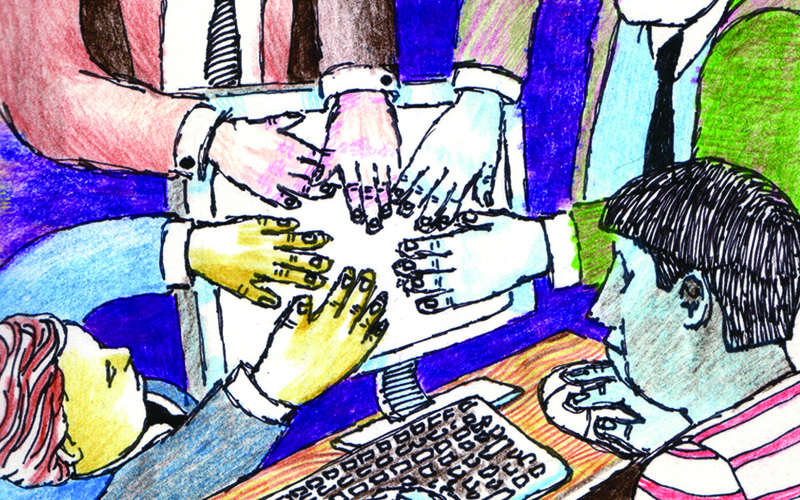Taking the Canadian Radio-television and Telecommunications Commission (CRTC) up on an open offer to all citizen groups, Open Media, a British Columbia-based advocacy group for fair media practices, will hold five conferences across Canada as part of a public engagement initiative called “Connected Canada.”
The conferences are geared at obtaining input from the public on how digital services, including cable and Internet, should be regulated.
Benjamin Klass, a University of Manitoba master’s student studying public policy, has been asked to host a conference in Winnipeg, which will take place at the U of M on Jan. 25.
Klass has recently featured in news segments across the country, including an appearance on CBC’s the Lang and O’Leary Exchange, after he authored a blog post entitled “I Am Canadian, A Reply To Bell’s Open Letter.”
The post is addressed to Bell Media CEO George Cope, who previously wrote a letter to the public decrying the possible entry of Verizon Communications into the Canadian market.
Klass also filed a complaint with the CRTC this fall alleging Bell Media had partaken in uncompetitive practices by discounting Internet usage pricing for its own Internet content. The proceeding is currently ongoing.
“In Canada we have a situation that is unique,” said Klass.
“The same people that provide the Internet are the same as the cable companies and the companies who produce the content that is on it. Shaw, Bell, Rogers, Quebecor (the big four) – they are vertically integrated. They own the pipes and they own the stuff that goes through the pipes.”
“Cable bills are the single largest communications expense for Canadian households. When you look at something like Netflix, you get access to all the programs you want that they have, and it only costs eight dollars per month. On the other hand, you have cable TV which has sports, the main reason people still get it, about $100 per month. [ . . . ] The free CBC app, YouTube, Vimeo, et cetera have started to demonstrate that it does not have to be so expensive,” he continued.
According to Klass, once connected to the Internet, consumers have a choice to make over what content they will access.
Klass filed the complaint against Bell because, according to him, by charging users less for Bell-owned content, customers are disempowered to make fair choices over what they will consume, and an unfair market advantage is conferred upon the company.
Klass argued that because of the availability of cheap content like Netflix online, companies create barriers for Internet use, such as data caps.
“You can watch as much cable as you want for one rate, but for Internet you have a certain amount of gigabytes, and who on Earth knows what a gigabyte is? They cap it and they also make it really confusing. It’s one of the ways they drive you to their own products.”
By nature of the telecommunications and Internet industry, Canada only has a few big players, which is why regulation of the industry has been a reoccurring issue.
Klass told the Manitoban that students should be particularly wary of communications industry regulatory practices because of the financial concerns they already face. Not being able to afford Internet access as a student would be a serious matter for many.
Asked what he would say to those who are disillusioned with the oligarchic control of telecom and Internet services, Klass urged users to make their voices heard, including with the federal government.
“One of the pillars of the Conservative government’s platform is consumer protection [ . . . ] they’ve put a lot of eggs in this basket [saying] ‘we’re going to bring in competition, lower prices, and more choices,’” he said.
Klass insists that participation in the upcoming Open Media Conferences will be at least one valuable opportunity for students and consumers to speak up, as the CRTC will be listening and looking for guidance from the public.
Open Media has been successful in the past at providing research to policy makers and the public, and at garnering support for campaigns aimed at keeping level playing grounds among media providers.
In 2011 Open Media played a key role in a decision by the CRTC to eliminate usage-based billing for Internet by compiling over half a million signatures on a petition and attracting support from political parties.
The conference on the U of M Fort Garry campus is to be held Jan. 25, 2 – 4 p.m. in 408 Tier. Open Media has launched a webpage dedicated to the event: www.openmedia.ca/connectedcanada





